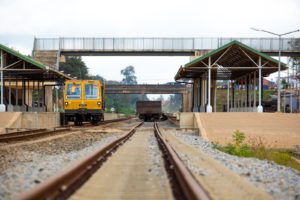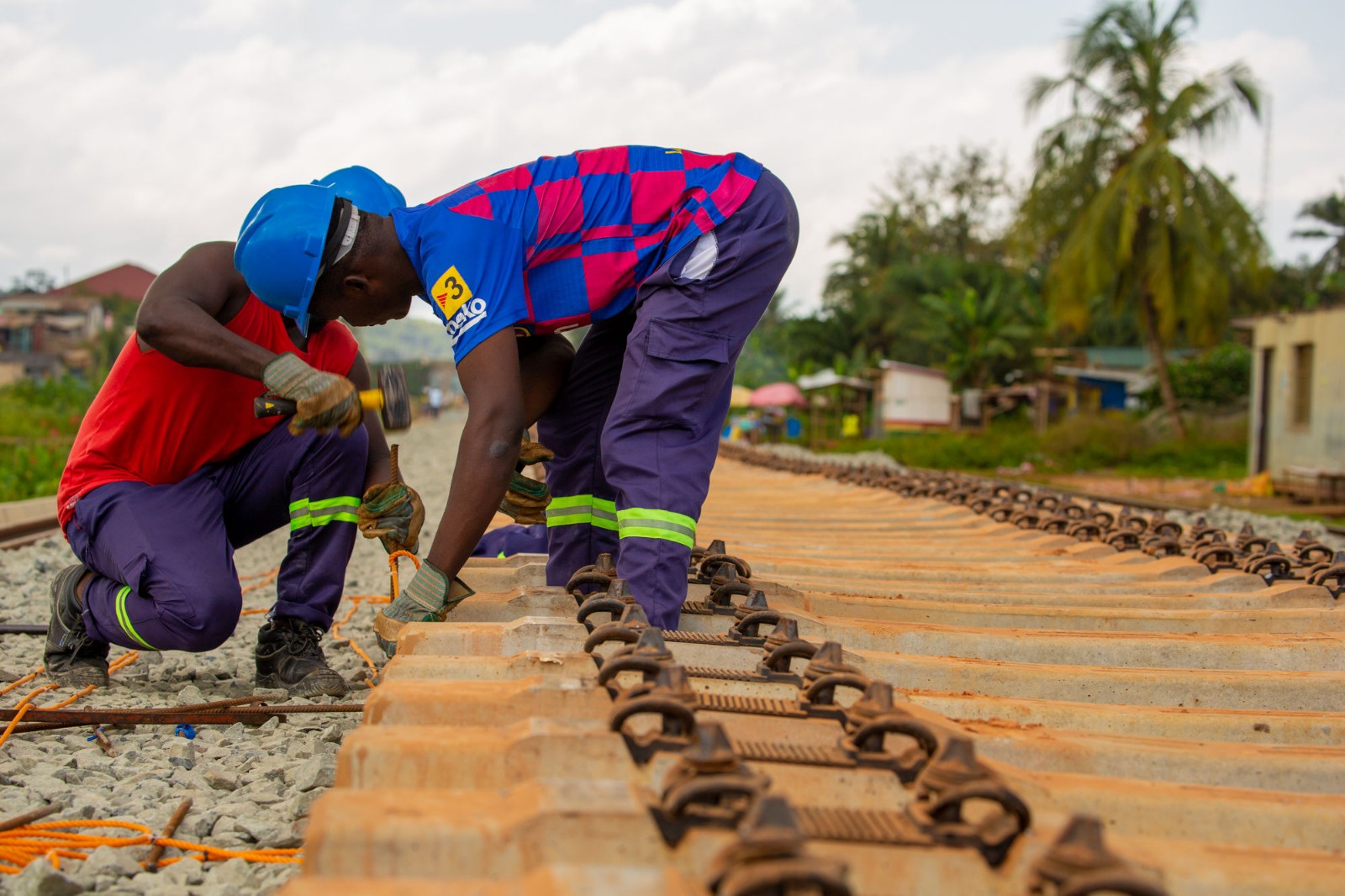The global aluminium industry is poised for remarkable growth and transformation in the coming decades.
With applications ranging from aerospace and automotive to construction and packaging, aluminium is an indispensable material in modern society.
Ghana, possessing the competitive advantage as a country with the second largest reserves of bauxite deposits in Africa, is positioned to take full advantage of the expected growth forecasted for the aluminium industry.
The Ghana Integrated Aluminium Industry (GIADEC) has, thus, been established to promote and develop an Integrated Aluminium Industry (IAI) in Ghana.
GIADEC, in partnership with strategic partners, will develop every aspect of the entire value chain of the IAI.

To meet the increasing demand and capitalize on emerging opportunities, developing robust infrastructure is essential for Ghana’s IAI.
Transport is one key piece of infrastructure that will anchor the IAI. Efficient transportation networks such as railways and ports are vital for the aluminium industry’s global reach.
It is for this reason that GIADEC has established the Transport Working Group to ensure that the plans and timelines of key government agencies responsible for developing the infrastructure needed for the IAI align with plans and timelines of GIADEC.
The group has representation from the Ministries of Roads and Highways, Departments of Urban Roads, Feeder Roads, the Ghana Ports and Harbours Authority and the Ghana Railway Development Authority.
Port infrastructure is another key piece of infrastructure needed for the IAI.
A new dry bulk terminal at the Takoradi Port in the Western Region was commissioned in December, 2022, as part of an aggressive strategy rollout by the Ghana Ports and Harbours Authority (GPHA) to boost the country’s trade capacity.
The new terminal has been designed to handle at least 30 million tons of bulk cargo per annum compared to its previous capacity to carry about 6.3 million tons per annum.
The port also has 3 conveyor belts with a combined output of 30 million tonnes of bulk cargo per annum.
With one of the three mechanized conveyor belt systems dedicated to bauxite alone, GIADEC says that the expansion of the Takoradi port will enhance the export of excess bauxite which will be produced under the IAI.
Following the gains made at the Takoradi port, GIADEC has called for a similar turn of events in the railways sector.
The availability of a functioning railway system is at the heart of the Corporation’s infrastructure needs, a ‘sine qua non’ to the success of the IAI.
This is due to the high volumes of raw bauxite that will be transported from the existing and new mines to the refineries which will be built.
According to GIADEC, a functional railway system is essential to avoid the transportation of raw bauxite and alumina by road.
The Corporation says that through the Transport Working Group, it has been able to engage the Ghana Railway Development Authority to ensure that the railway line went all the way to areas where the mines will be built.
The completion of the western railway lines, for example, will come as a major boost to the development of the IAI, the Corporation added.
An equally important piece of infrastructure needed for the IAI is Power. The availability of a reliable source of electricity supply to the mines, refineries and smelter is essential for the success of the IAI.
It is for this reason that GIADEC has established the Power Working Group with representation from the Ghana Grid Company, Volta River Authority, Ghana National Gas Company, Ghana Atomic Energy Commission, Energy Commission, West African Gas Pipeline Company and the Volta Aluminium Company, to ensure that the power needed for the IAI is available.
GIADEC says it will leverage on the construction of a gas pipeline from the Atuabo Gas Processing Plant (GPP) to Kumasi by the Ghana Gas Company Limited to power the mines and refineries which will be built.
Since it began operations in 2019, GIADEC has been delivering on its Master Plan to develop an IAI in Ghana.
GIADEC holds and manages all of Government of Ghana (GoG)’s current and future interest and investments in the IAI which includes the entire value chain in the production of aluminium.
GIADEC currently holds GoG’s 100% stake in VALCO and the 20% minority stake in Ghana Bauxite Company Limited (GBC). Additionally, all of Ghana’s projected nine hundred million metric tonnes of bauxite have been novated to GIADEC.
GIADEC’s Master Plan defines four key projects the Corporation is driving to develop a fully Integrated Aluminium Industry in Ghana.
The document also highlights all the key components such as infrastructure, allied industries, and the regulatory, statutory, and environmental frameworks required to support the IAI in Ghana.
In September 2021, President Akufo-Addo launched all four (4) projects of the IAI and witnessed the signing ceremony between GIADEC and its strategic partner, Rocksure International, to execute Project 2 – the development of a mine at Nyinahin-Mpasaaso and a refinery solution.
Recently, in January this year, President Akufo-Addo witnessed the signing and announcement of Mytilineos S.A, an industrial and energy multinational company, listed on the Athens Stock Exchange, as GIADEC’s strategic partner that will develop portions of Nyinahin bauxite resources and build a refinery, known as Project 3A.
The other two projects include the expansion of the existing mine at Awaso and building of a refinery – Project 1 and the modernisation and expansion of the VALCO smelter to improve efficiency and increase capacity – Project 4.
The integrated aluminium industry’s future success hinges on the development of a comprehensive infrastructure network that encompasses raw material supply, energy efficiency, transportation, and regulatory support.
By strategically investing in these infrastructure components, the industry can foster sustainable growth, and remain a cornerstone of modern manufacturing for years to come.
It is a collaborative effort that involves governments, industries, and communities to forge a brighter, more sustainable future for Ghana’s IAI.
ALSO READ:

